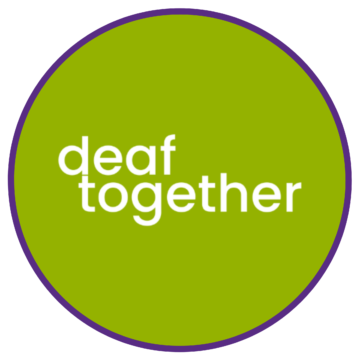
12 tips for communicating with Deaf patients
Examples of poor access impacting Deaf people’s health and wasting resources
Communication barriers are the main reason Deaf people have poorer health outcomes compared to hearing people.
It actually starts with making an appointment. In some places, Deaf patients still have to walk into their surgery to book time with their doctor, because of the lack of accessible ways to contact the GP surgery. Alternatives such as an SMS number, email or online appointment systems reduce barriers faced by Deaf patients.
An ordinary phone call is not accessible for Deaf patients. This includes holding consultations, sharing test results or confirming appointment details. This failure leads to poorer health outcomes for Deaf people who are routinely denied basic access to healthcare. According to the Accessible Information Standard, alternative communication channels must be arranged that meet the communication preferences of your patient.
Alternative methods might include text message or email for notifications, or booking a BSL interpreter for remote consultations using a Video Relay Service (VRS).
Having a system to call people into the consulting room which doesn’t rely on shouting out their name. Deaf people still cannot hear you, even when you shout. Everyone’s time is wasted when appointments are missed which costs the NHS millions of pounds each year and negatively impacts the health of Deaf patients who experience significant delays for diagnosis and treatment.
12 Tips for communicating with Deaf patients
A patient should not use a friend or family member to interpret for them. They will not know medical jargon or be trained to interpret health information, but most importantly, your patient will have no independence or privacy if a friend or family member accompanies them.
When we speak to the interpreter rather than the patient, this excludes the patient from being involved in decision making. The interpreter is not a representative of the patient and will not know personal or health information. It is also respectful to speak directly to your patient.
Effective communication will depend on everyone’s engagement. If you are speaking while the patient is checking their phone, they will not be watching the interpreter. You can wave to get your Deaf patient’s attention and you may need to be patient as communication can take longer with an interpreter. Please don’t rush.
Don’t talk to your patient whilst looking at your computer screen, filling out paperwork or with your back turned towards them. This makes communication difficult as they cannot read your facial expressions or lips which is vital. Avoid covering your mouth with your hands or paper and speak clearly at your normal pace.
When you over exaggerate each word, shout or mumble, you are difficult to lipread. Instead, speak normally, facing the Deaf patient in a well lit space.
Shouting can be uncomfortable for a patient wearing hearing aids. It also distorts your normal lip movements making you difficult to lipread.
So that a Deaf patient can communicate with you, make sure you are in a well lit space, so that the patient can see your face clearly. Strong directional light (like bright sun through a window) may cause harsh shadows making it hard to see you clearly. Use blinds or move to somewhere with better lighting if you have this problem.
If writing, use plain English and avoid complex medical terms which the Deaf patient may not understand. When speaking, use simple language and speak at your normal speed and volume.
If you are having difficulty explaining something you can use written notes, pictures or diagrams to assist communication. But remember that Deaf people have different communication needs, so writing information down won’t be helpful for everyone.
Gestures and facial expressions can be helpful when explaining. For example, using facial expressions to show if something is painful, scary, or using a thumbs up sign to show there is nothing to worry about.
Pointing to parts of your body is a useful way to communicate with a Deaf person. It may be that you need to take blood, scan or x-ray your patient, you can point to the relevant part of the body.
Keep checking to make sure your patient understands you. If your patient doesn’t understand you, try and think of a different way to explain and help them understand.
It’s vital that the surgery or hospital (not the patient) book an interpreter if requested by the Deaf patient as not all deaf people use interpreters and may request different type of communication support.
Deaf people have a legal right to access healthcare and have their communication needs met. Every NHS Trust has a contracted language service provider who will book qualified communication professionals for patient appointments.

Review of the NHS Accessible Information Standard
Urgent priorities for change, informed by patients’ lived experience and NHS professionals.
ReportWhy does SignHealth provide specialist services?
There are a number of gaps in service provisions that can significantly impact the health and wellbeing of Deaf people. We provide psychological therapy, domestic abuse support, advocacy, outreach and residential services to support Deaf people who would otherwise struggle due to communication barriers.
We are working to improve the health and wellbeing of Deaf people. Please consider donating today.








